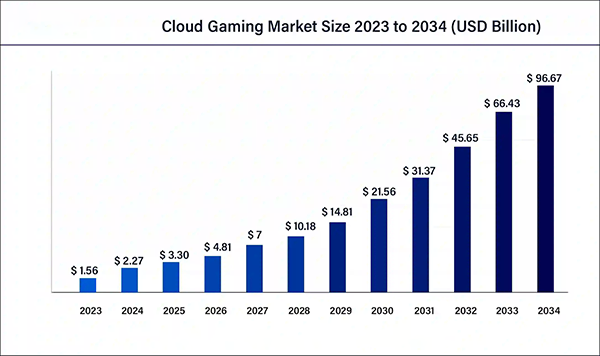“The future of entertainment is being shaped by technology, and the entertainment industry is adapting to it in real-time.”
— Reed Hastings, Co-founder and CEO of Netflix
Everyone would agree that technology has played a major part in enhancing the digital entertainment experience. I remember how I had to leave all my work just to watch my favorite TV show because of scheduled broadcasts.
But now this is not the case, I can watch my favorite shows anytime, and anywhere I want on streaming platforms. Not only that, but innovations like immersive VR, on-demand screening, and personalized content, have transformed the entertainment industry, making it more engaging, accessible, and customizable than ever before.
It does not end there, the online entertainment industry is on the rise and is projected to be worth $865.6 billion by 2028, growing at a CAGR of 18.80% (Market.us).
Without further ado, let’s dive into today’s article and discuss the role of technology in transforming the entertainment industry.
As I said in the introduction, gone are the days when we were bound to television broadcasting schedules, or renting movies and albums meant going to a physical store. We can say that one of the biggest accomplishments that technological innovation has brought to the digital world is how much more accessible it is to people across the board. Disabilities and alternate perceptions are more accommodated – though this does vary from release to release.
If I talk about games, Some games have been lauded for their increased accessibility options, promptly setting the standard that other games are expected to match. This allows a wider audience to enjoy games that they previously may not have been able to access due to any reason.
But there is also the question of how games are preserved – for mediums like music, the creation of a digital library allows massive records of songs to be maintained– but gaming has had a typically spottier past when it comes to ensuring they’re always available. We have found the solution to this too, the invention of cloud gaming and its widespread integration, often makes it easier for players to access games that aren’t necessarily ported to their console of choice. It is gaining huge popularity in recent times and the cloud gaming market is on the rise. It is expected to grow from $2.27 billion to $96.67 billion by 2034.

It doesn’t matter if we are talking about movies, music, or games, remasters have always been a controversial topic. While it can clean up the rough edges and make the title more accessible and enjoyable on modern hardware, sometimes some details are lost in translation.
In gaming, it might be that upscaling the graphics offers a much cleaner and more modern visual experience but loses what solutions were previously offered by those earlier limitations – such as fog or other atmospheric touches.
I know some of you might question, “What is the right approach, then?” Well, see remasters are sometimes arguably necessary, but if the original is still available, a balance can be struck that leaves both sides happy.
FUN FACT
AI algorithms are now composing music! In 2020, an AI system created an album called “I AM AI” that reached the top 10 on iTunes’ electronic music chart.
More resources don’t always ensure a more thoroughly realized creative result. In fact, sometimes restrictions can force creatives to think up ways of bringing their vision to fruition with what they have available rather than relying on spending to resolve the issue.
Regarding casino games available through platforms like Spin Casino, it becomes about creating the illusion of a venue rather than just nakedly presenting the games.
While the digital format offers unique benefits such as the presence of mini-games or RPG characters, these platforms also use modern sound and visual design to create an element of immersion – even when that concept ultimately takes a different form from what a game with a much larger budget does to achieve the same goal.
Technology has already changed a lot in the entertainment industry and is continuing to do so with the help of innovations like VR, AI, cloud gaming, and social platforms. All these factors make digital entertainment experiences much more engaging, interactive, accessible, and personalized.
We can also say that technology is playing a major role in breaking down the barriers concerned with traditional entertainment methods and creating new opportunities for creators and consumers alike.
As it further evolves in the future, we can expect more exciting innovations that will surely improve this landscape even more and definitely reshape the way we experience entertainment in the future.

Thanks for choosing to leave a comment. Please keep in mind that all comments are moderated according to our comment Policy.